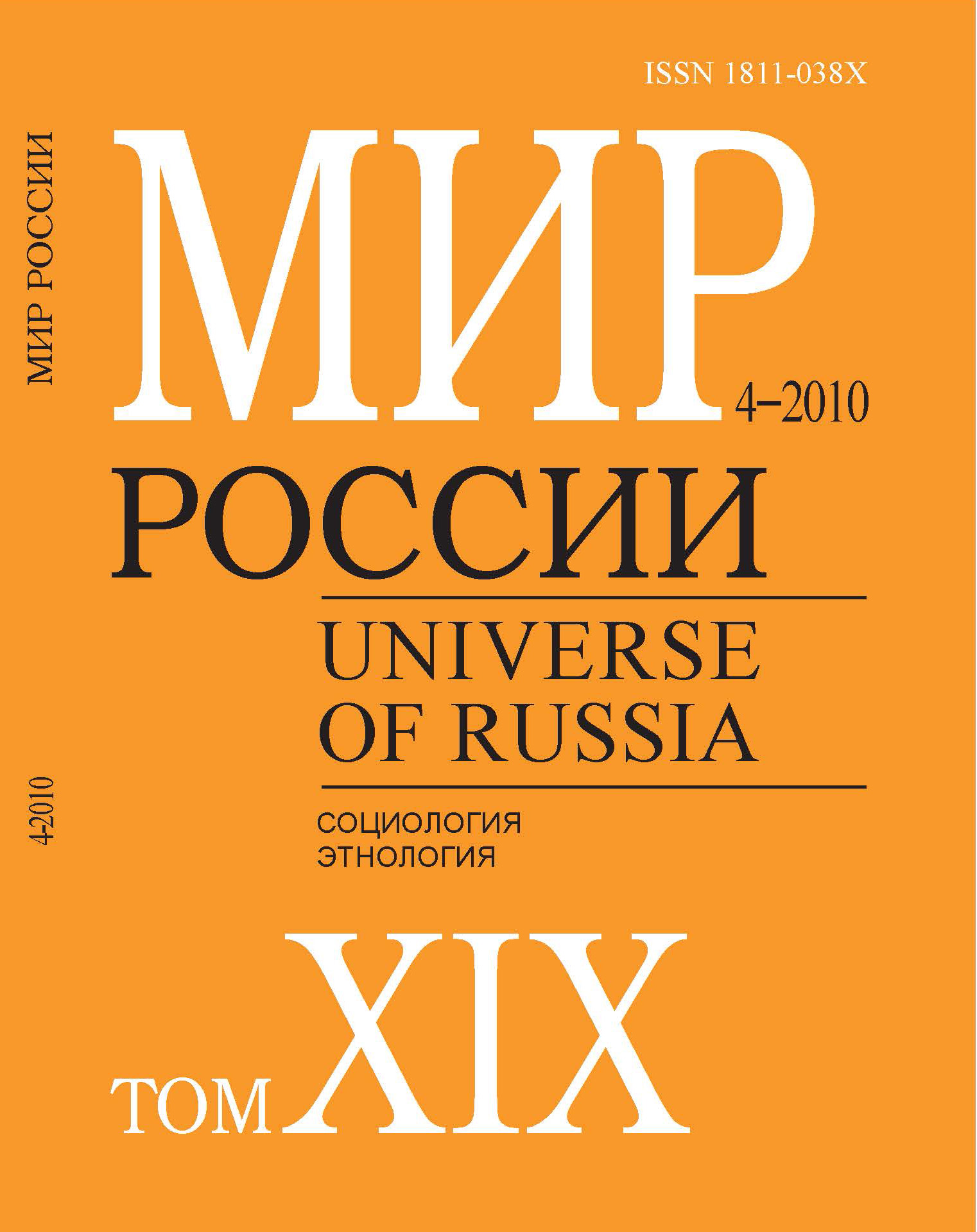Russia’s Transition to Capitalism: The Rise of a World Power?
Abstract
David Lane — AcSS, Emeritus Fellow, Emmanuel College, Cambridge University. Address: Free School Lane, Cambridge, CB2 3RQ, Great Britain.
The ‘power’ of a country in international affairs may be assessed from a number of points of view: its military capacity, which in turn is derived, in a large part, from its economic strength; its human and social capital — the size and quality (level of health and education) of its population; and finally, its moral and ideological values. To discuss the extent to which Russia is a world power, the author considers its economic capacity and research effort and the ideology of the Putin/Medvedev administration. He also outlines the economic strength of Russia’s companies and makes comparisons with China, the USA and the UK, and shows that, despite its energy wealth, Russia is not a major world economic power. The author then addresses the question of why Russia’s power in international affairs is exaggerated and why it is considered a ‘threat’.
The data analyzed in this paper show quite conclusively that the economic power of Russia and China, as measured by the presence of their major corporations, is qualitatively at a lower level than the advanced Western states — particularly the USA. China has a wider range of companies in terms of economic sectors, but Russia is limited to companies in the primary sectors — oil, gas and materials — and is particularly lacking in high-tech industries. While Russia may have considerable cash and gold reserves, it does not qualify as a ‘financial power-house’.
The author further analyses export profiles of various countries and shows that with the exception of China and Hungary (the latter is not discussed here), post-socialist societies have entered the global system, but they are low in value-added products and are competitive only in low-technology products. In this context, Russia would appear to be an economically weak country, not a leading economic power. China would seem to be a better candidate, though it is still in a qualitatively different league from the USA.
Russia’s place in the world economic system is limited to a small number of energy companies. However, unlike the majority of the new (ex-socialist) states in the EU, in many respects Russia is not incorporated into the world system, as its economy has a high level of state ownership and control, and foreign companies have little penetration. (Its transnationality index is below the average for developed and developing economies.) Russia’s military and political elites (not discussed in this paper) are not integrated into those of the Western hegemonic states. The inclusion of the elites of the post-communist states in the European Union and NATO has strengthened the cohesion of these states (as represented by their elites) with the West, though not in the case of Russia.
An assumption of many advocates of entry into the world economy, both before and after the fall of state socialism, is that participation benefits all. What is lacking in these accounts is recognition that the world economy is composed of rich and poor states, economically advanced and economically backward, militarily powerful and weak. Evidence suggests that the core countries extend their lead and keep to themselves research, design, finance, and ownership of intellectual and physical property. Their economic power is a necessary condition of their political hegemony. The quality and quantity of their weapons of mass destruction cannot be matched. The peripheral states act as manufacturing subcontractors. They provide primary and secondary products, and they experience an outflow of profits and labor in return for FDI and manufactured products.
Many nations on the periphery, when confronted with the economic, political and military power of the core states, have little alternative than to accede to their policies. But some countries (Brazil, India, Russia and China) of the ‘semi-periphery’ may have more options than assumed by world system theorists and those who envisage a ‘one-world’ economy regulated by hegemonic American capitalism. There is divergence as well as convergence in the world economy. The ‘semi-periphery’ may lead to the rise of alternative groupings of states which interact with the core but are not part of it — in the same way as the state socialist societies did before their collapse. The economies of many countries have production which is local in character; regional companies and political actors have considerable scope for action independently of the global economy.
In this context, the Russian Federation has a limited number of choices. Membership of the EU, as an alternative regional bloc sustaining political and economic networks, is not on the agenda. Russia has to trade as best it can on the world market and meet the conditions of global institutions such as the WTO. Concurrent with pursuing economic exchange with other actors in the world economy (EU, USA, Japan, China, India), it has opportunities as part of a wider CIS. Russia has an option for a type of national state-led capitalism as an alternative to participation in the global economy on the terms of neo-liberalism. Statist China rather than the neo-liberal West is a model for Russia to copy.






